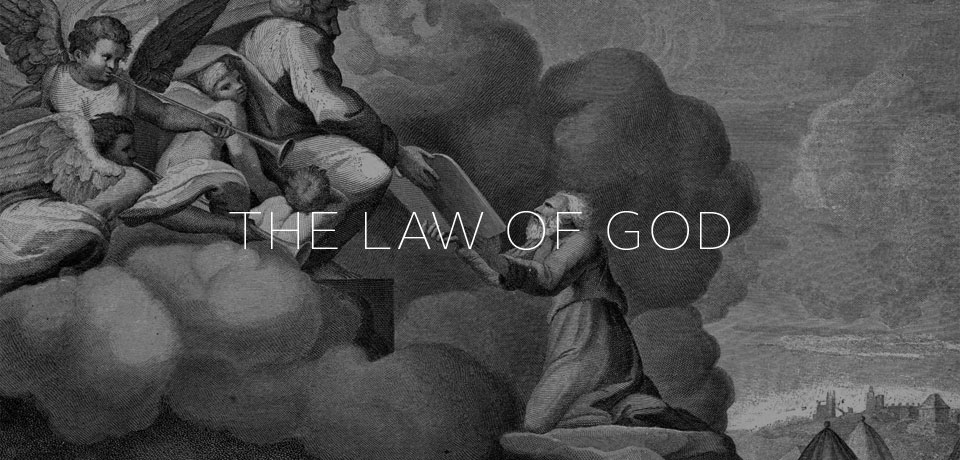A few weeks back, an article on pastoral ministry arrived in my inbox. As I read it, I felt inner constriction. Squeamish and disconcerted. It wasn’t that the content was offensive or vulgar. It was, after all, a reflection on what’s involved in being a trustworthy, competent, and faithful pastor. Most of its guidance was drawn right from the New Testament. It spoke of integrity, honesty, self-control, generosity, hospitality, and other such Christ-like traits. Without doubt, these are worthy virtues for a minister! They are things to which I aspire. Even so, as I read the article, I didn’t feel inspired. Or even constructively challenged. I felt overwhelmed. I felt inept. I battled fleeting sentiments of unworthiness.
God’s standards—and his standards for pastors—are high. The holiness that he wants for his people, and those who guide them, is not trivial. It’s not subjective or abstract. The article I read brought all of this to the fore of my mind in a fresh, potent manner!
A few days later, I found myself reflecting on this unsettling experience. Why did I feel overwhelmed and inadequate when I read those biblical pastoring guidelines? Out of this reflection, I’ve found a natural springboard for a discussion of God’s Law.
The Law of God represents his holy standards. The New Testament teaching about Christian life and pastoral work, echoes the standards found in God’s Law. Recognizing this compels a question: how are Christians to relate to it?
The topic of divine law is no stranger to controversy in the church. As a minister, I encounter questions about this subject quite regularly. The Law of God is a perplexing topic. It’s a term that scares some, angers others, and confuses most. Trying to determine how it lines up with divine grace—the good news of divine compassion and mercy seen in Jesus Christ—only makes things more complicated. That’s why there’s a longstanding temptation among Christians—which goes back to ancient times—to jettison God’s Law. Some contend that divine law has been displaced by grace. The Law of God published throughout the initial books of the Old Testament, they say, has fulfilled its past purpose. Today, for the Christian, its functions have expired.
While the simplicity of this perspective is attractive, matters aren’t quite so simple! A quick glance into church history corroborates this point. More importantly, a survey of the New Testament also leads to different conclusions. Because I have spent years wondering and inquiring about the relationship between God’s Law and God’s Grace, I am glad to share a few things which may bring clarity.
The Christian should keep in mind four things when understanding divine law:
1. God’s Law is Good.
The Law of God, in the context of Scripture, is seen to serve more than one purpose. Originally, it was given to the ancient nation of Israel—the people of God in the Old Testament—as a map for developing a just, humane, and upright society. Torah is the Hebrew term that we translate as “law.” It refers to much more than restrictions and prohibitions. Torah is about wisdom. It’s about living well and in correspondence to the natural and spiritual realities of creation. It’s about making a well-ordered society that has well-ordered relationships. Israel—in the embodiment of Torah—was to be different from other nations. It was to be a place that promoted broader human flourishing and shalom. Shalom is the Hebrew word for things existing in harmony and health. It’s a way of being conducive to thriving.
In all of this, we can see that divine law is a good gift. This is what Psalm 119 and Psalm 147 celebrate! While Torah’s vision doesn’t seem incredibly progressive by our modern standards, in its original context, it was!
2. God’s Law leads to God’s Grace.
While the law is a gift for Israel to promote individual and societal well-being, the Bible also says that it serves another function. St. Paul articulates this in Galatians 3 and Romans 7. The Law, in sketching a human expression of divine holiness, leaves us with a sense of our lack. Our lack of holiness. Our lack of selflessness. Our lack of love for our neighbours. Our lack of trust in God. Our lack of moral uprightness. The list could go on, for God’s Law touches on most every area of life. The 16th century German theologian Martin Luther speaks of this as the “second use of the law.”The law makes us aware of our sin. It gives us a very concrete and personal awareness of our shortcomings. It is a judge. It causes us to have an experience like the one I had when I read the article that prompted this blog!
In such experiences, God doesn’t want his law to permanently crush and condemn us. Rather, he wants it to drive us to him. To induce us—even compel us!—to trust in him, and not our own capacity, ingenuity, and strength for our ultimate well-being. In this way, God’s Law leads us to God’s Grace. And God’s Grace wants us to rely firstly and chiefly on God himself for our inner peace, stability, value, hope, sense of purpose, and joie de vivre.
3. God’s Law, Through God’s Grace, Helps Us Embody Holiness.
There is more to say about God’s Law! It has yet another function. John Calvin, a major Protestant theologian, gives eloquent expression to this, known as the Third Use of the Law. His ideas align with the New Testament’s ethical outlook for Christian life. After the law leads us to grace, where we find relief in God’s mercy, it comes back into our life. But with a totally different function. This time, it stands not as a judge but as a teacher. It helps us to understand what holiness in action looks like.
You see, God doesn’t just want us to love and desire him. He also wants this love to be expressed in palpable ways that reflect his own loving, wise character. His law provides clues for us along these lines. It tells us, for instance, that holiness isn’t just about personal morality. It’s also about wider social concerns. It is attentive to justice. It pertains to our use of resources. It speaks into the nature of human politics and economics. It instructs us on sustainable patterns of life—in a spiritual, social, ecological, psychological, and emotional sense.
As a teacher, God’s Law reminds us that Christian holiness is not a wholly subjective business. If it was, then all sorts of things could wrongly claim to be holy. Torah, as used in the church, protects us from self-deception and blind spots in this arena. And it guides the church in recognizing and pursing holy modes of living—a way of being that is pleasing to God and mirrors the life patterns, activities, and attitudes of God incarnate, Jesus Christ.
Embracing this use of the God’s Law doesn’t commit the Christian to a straightforward, direct, rigid appropriation of everything in the Torah of the Old Testament. This would be weird, impossible, and even ugly at moments. Listening to Torah, and applying its wisdom and instruction, requires prayer, creativity, and the input of other Christians. It demands attention to how God’s Law is utilized in the New Testament.
4. God’s Law, Without God’s Grace, Generates Legalism
If you’re not yet mentally spent by this point, then I’ll give you one last comment. If you don’t understand grace, don’t bother with God’s Law. To approach the law apart from the sure knowledge that God’s unrelenting love for you is grounded in Jesus Christ’s solidity and sacrifice for us is to ask for trouble. It’s a recipe for legalism. It’s a temptation to try and be a good person apart from the trust and love of God. However, if you know the ways of grace, and you rest in God’s approval given through Christ, then look to the law to inform your priorities, conduct, and vision of discipleship. It will provide wisdom, inspiration, and practical tips for living for God.
The Law guided Jesus in his holy life. He invites us into the same life. His Spirit enables us in this. Like him, we should look to God’s prior instruction on what it means to be God’s people in tangible ways. Through grace, we can do this without the pressure of having to be perfect. We will fail. It’s okay. But along the way, with God’s help, we can further the good work of his kingdom.
With this, I draw to a close. I hope you’ve gained an enhanced perspective on God’s Law. More importantly, I hope you will come to celebrate it as part of God’s gift to us.




